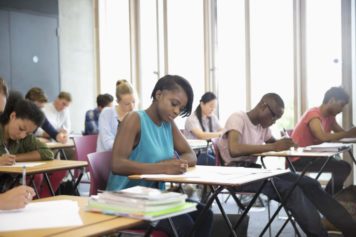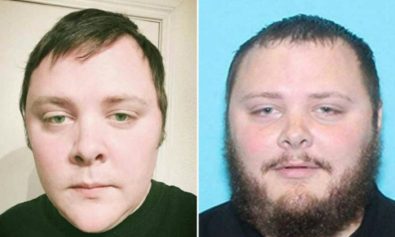As the nation grapples with the problems of the school-to-prison pipeline and the intersection of racial justice, the criminal justice system, law enforcement and education, the need for new priorities for children comes to light. For example, in a national public school system that is now majority children of color, students are suffering from trauma.
And while there is a shortage of support staff to service public school children — including counselors, psychologists and social workers — children of color are hit especially hard. Black and brown children, who are most likely to live with trauma, run a much greater risk of facing harsh punishment and school discipline rather than receiving the crucial mental health counseling they need.
A new research report from the Center for American Progress (CAP), “Counsel or Criminalize? Why Students of Color Need Supports, not Suspensions,” tells the story with the first-of-its-kind, state-level analysis on the shortage of counselors, psychologists and social workers in America’s public schools.
Consider, for example, that 35 million children in the U.S. are suffering from trauma, yet only 8 million (22 percent) have a school psychologist at their disposal. Only 63 percent of public schools have a counselor, and a mere 18 percent have a social worker. Moreover, the challenges facing children of color place the extent of the problem in full view. African-American, Latino and Native American children, who are most likely to experience traumatic events, are also disproportionately poor, which in itself is a risk factor for psychological distress.
Moreover, nearly 3 million children are suspended from school each year, reflecting zero-tolerance policies that are racially discriminatory in nature. Those students who face draconian disciplinary measures are also those who risk dropping out and going to prison — traumatized children.
According to the report, 90 percent of juvenile detainees are living with trauma. Further, Black children are three times as likely to suffer from abuse or neglect than white children, and are also three times less likely to receive mental health care. And because of institutional racism and the perception that their behavior is disruptive, Black children also have a fourfold risk of suspensions over their white counterparts. Meanwhile, Native American youth face the greatest barriers to mental health, as they have double the risk of committing suicide as other groups.
Delving into the statistics on a state-by-state basis reveals the extent of the crisis, which CAP says amounts to a “silent epidemic.” While it is not surprising that the states of the South suffer from the most dire shortages of social workers and psychologists, it is shocking that the bottom is so low.
For example, the seven states accounting for 90 percent of the cases of corporal punishment of Black children in 2011-2012 — Mississippi, Alabama, Georgia, Arkansas, Texas, Louisiana, and Tennessee — had psychologists in only 10 percent of their schools. Only 24 percent of Georgia schools have a full-time psychologist, while Alabama, Mississippi and Texas have the lowest supply of such professionals. Alabama, which suspended 20 percent of its Black children, has almost no in-house psychologists. In Mississippi, the schools have a student-to-counselor ratio of 436-to-1, nearly double the recommended ratio, while only 3 percent of schools have a psychologist.
And in Wisconsin, where more than one fourth of Black students were subjected to out-of-school suspensions, only 59 percent of public schools employed a counselor.
“The numbers are sobering,” said Perpetual Baffour, Research Assistant for Education Policy at CAP and author of the brief, in a press release. “When millions of children live in poverty, experience physical or sexual abuse, witness tragedy in their communities, lose a parent to incarceration, and/or lack access to safe and clean drinking water, it should be no surprise when they experience challenges in the classroom. Children cannot learn when they lack adequate and meaningful supports for their well-being.”
The national issue of traumatized Black children receiving severe punishment rather than beneficial support services was on display in Spring Valley High School in 2015, when a recently orphaned girl named Shakara was assaulted by a police officer in her classroom for failing to comply with an unfair punishment, and then was arrested along with a classmate. Atlanta Black Star has reported on the ways in which violence causes PTSD-like symptoms in Black people, and has examined the neuroscience of poverty and the impact of racism on the mental well-being of African-American children and adults. The trauma facing Black people is hereditary and intergenerational, passing through the DNA and reflecting a legacy of oppression from the Middle Passage, though enslavement and Jim Crow to the present day.
Regarding the unaddressed trauma among public school children, CAP offers several recommendations, including making school-based counseling and mental health programs a funding priority, crafting an approach to school discipline that is restorative rather than punitive, and developing culturally sensitive policies for emotional and behavioral support services.


